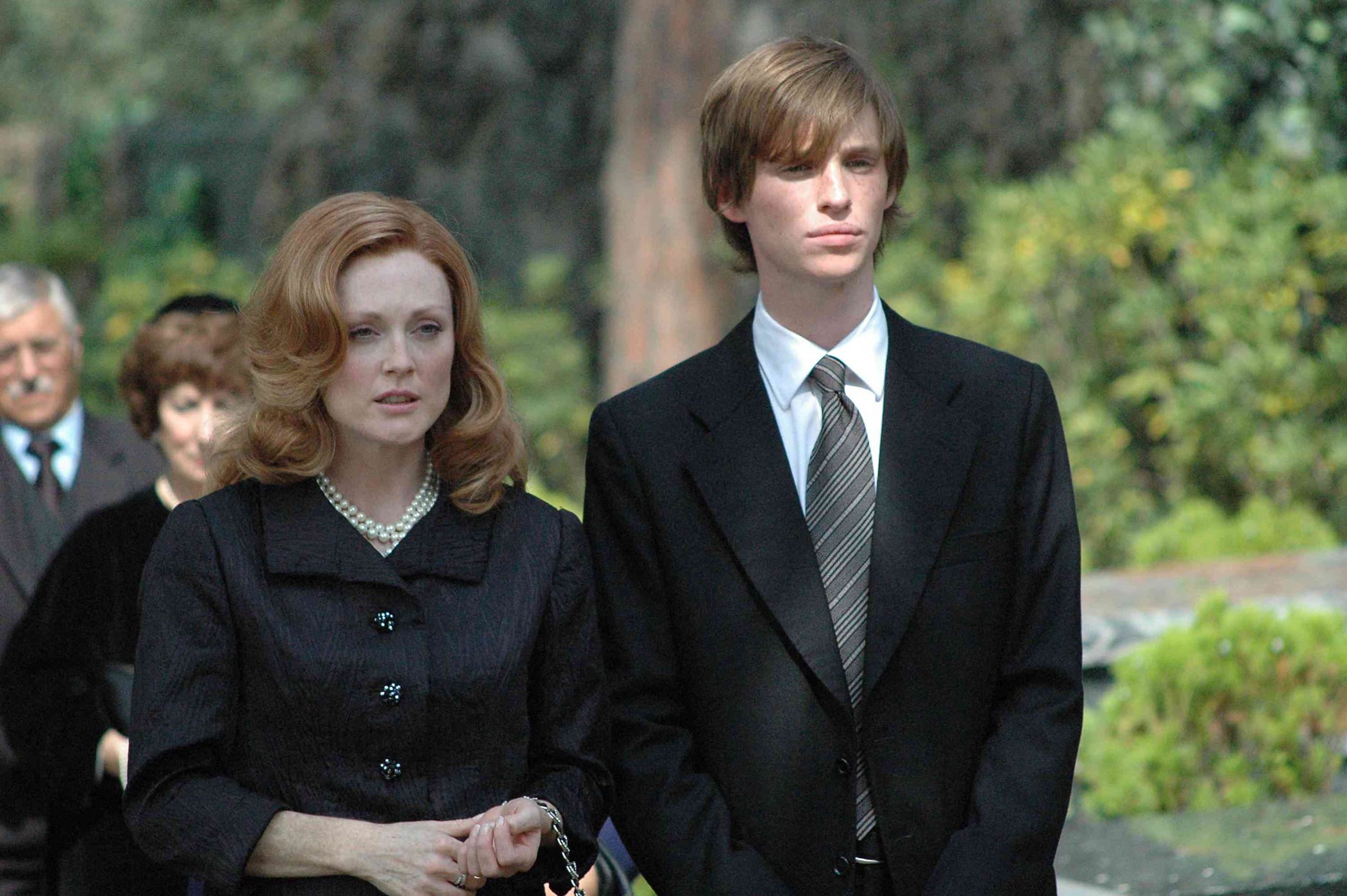
At the Academy Awards on Feb. 22, Eddie Redmayne and Julianne Moore are among the frontrunners for the Best Actor and Best Actress prizes. Redmayne has won Golden Globe, Screen Actors Guild, and British Academy Film Awards honors for his performance as Stephen Hawking in The Theory of Everything; Moore, too, has received accolades for her role as an Alzheimer’s patient in Still Alice. And while neither Redmayne nor Moore has ever won an Oscar, the pair have a history together that dates back before Oscar season: In 2008, Moore was Redmayne’s onscreen mother in a movie whose title was as melodramatic as its content.
Savage Grace, directed by Tom Kalin (who has not since made another movie), depicts the story of Barbara Baekeland and her son Anthony. The pair were shielded from the world by the fortune stemming from the family’s claim to Bakelite plastic, and were enmeshed in scandal after Anthony killed Barbara. This trailer gives a sense of the film’s tone—though it only alludes to the incest depicted in the film.
The film was too in love with its own glittering images for critics at the time: In the New York Times, A. O. Scott described the film’s decadence, its delight in the fall of the Baekeland dynasty, before noting that the movie “doesn’t seem quite sure of how to communicate its own fascination with such doings, whether to convey shock, envy, pity or bemusement.” Moore, in an interview, noted her “trepidation” about the film’s subject matter.
The trepidation may well still be with her: Still Alice, despite the challenge it presents Moore, is pretty safe; Alice is unimpeachably virtuous, and her downfall is entirely tragic. Redmayne’s Oscar-nominated performance, too, is effectively that of a secular saint: His character’s real-life complications, including leaving the wife who’d been his longtime caretaker, are given a happy spin, while his heroic bravery in the face of illness gets the focus. These movies take pleasure in depicting suffering, too—just in a different, more easily awardable fashion.
Savage Grace was released at a precarious moment for both Moore and Redmayne: Five years removed from her double Oscar nominations for Far From Heaven and The Hours in 2003, Moore had seen bids at mainstream stardom, like The Forgotten and Laws of Attraction, meet with scathing reviews. Savage Grace was a chance to shore up indie credibility, and one that seems to have worked: The next year, she appeared in A Single Man, and the year after that, The Kids Are All Right.
For Redmayne, it was simply a job: It was only his third theatrical film. He followed it with a role in The Other Boleyn Girl and the miniseries The Pillars of the Earth, and won a Tony in 2010. Both stars put the film behind them easily. But for all the artistic success of their recent material, it’s hard not to wish that performers were able to keep a bit of that riskiness in awards season. At least on DVD, we’ll always have the pair decompensating across Europe, glamorously.
More Must-Reads from TIME
- Donald Trump Is TIME's 2024 Person of the Year
- Why We Chose Trump as Person of the Year
- Is Intermittent Fasting Good or Bad for You?
- The 100 Must-Read Books of 2024
- The 20 Best Christmas TV Episodes
- Column: If Optimism Feels Ridiculous Now, Try Hope
- The Future of Climate Action Is Trade Policy
- Merle Bombardieri Is Helping People Make the Baby Decision
Contact us at letters@time.com